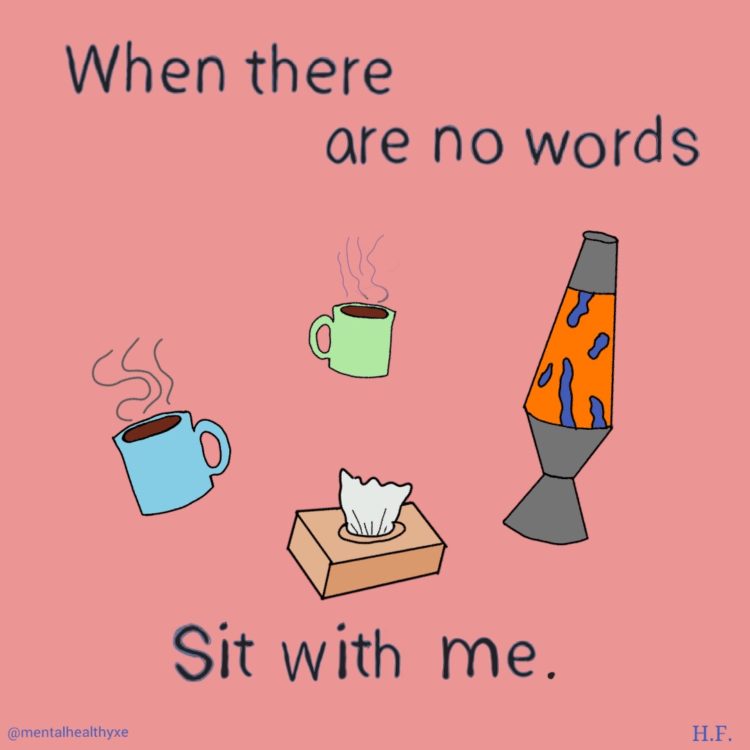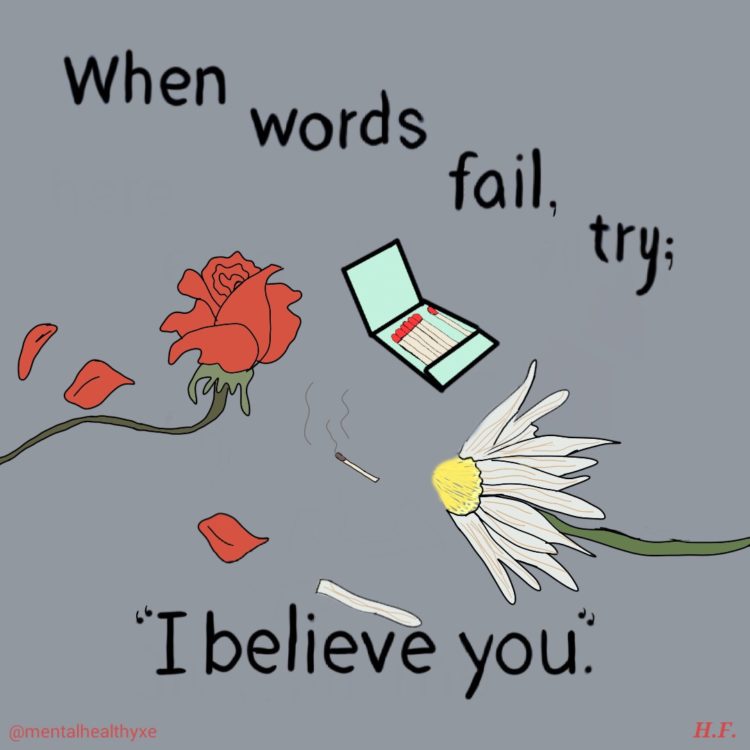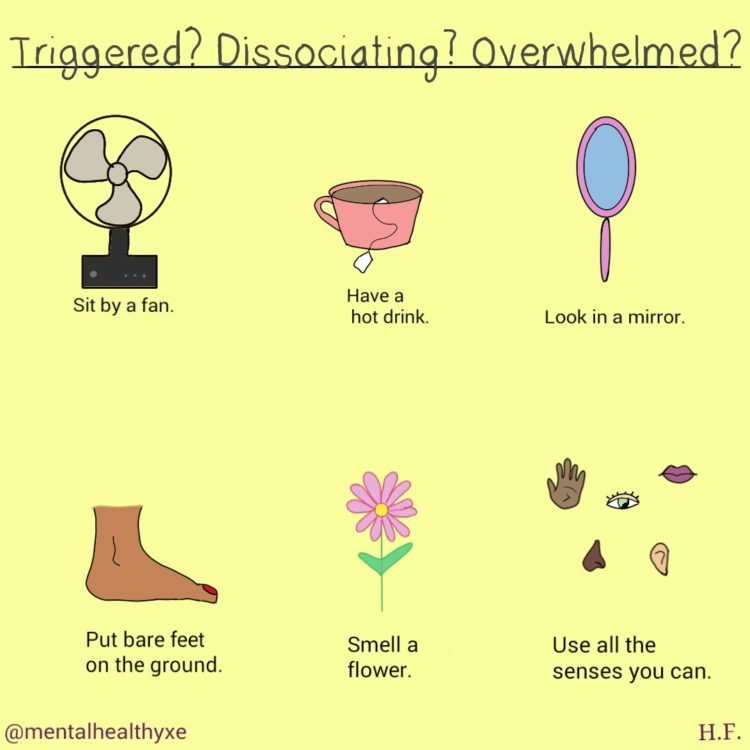I’m 36, and I just had my first full physical exam.
Before I start this article I want to acknowledge the privileges I have. Privileges that likely made the experience I’m about to describe not only easier, but in some cases — even possible. I am white, cisgendered, middle-class, able bodied, average sized, have access to transportation, financial resources, and live in a country with free health care. What I’m about to share may not have been possible or would have been much more difficult without those privileges. If you face increased or multiple barriers your journey may look much different than mine. I’m also well aware that I’m writing this on a website dedicated to medical conditions, and many folks don’t have much of a choice about going to see the doctor.
—
After a certain age, usually somewhere around when they stop giving out suckers, many of us start to dread going to the doctor. I too had that dread, and it turned into a full blown avoidance issue. In my 20s it was common for me to go years without seeing a doctor. Then when I did, it was usually a walk-in clinic, and later on when I needed some medications my visits rarely consisted of anything more than a few sentences and being handed my prescription.
I would agonize about going when I had a problem, I’d struggle with panic in the waiting room, I’d rush through appointments hoping to not have the need to go back for as long as possible. Somewhere in there I started taking psychiatric and thyroid medications, so some appointments became more often but I continued to find them frightening.
Some of this was due unpleasant doctors with zero bedside manner, but the majority of the avoidance was due to past sexual trauma. While I generally don’t get the full diagnosis of PTSD, I do experience symptoms of it, avoidance being one. It wasn’t that I didn’t care about my health, in fact it was my desire to remain healthy that pushed me to work through this all.
It shouldn’t come as a surprise then, that up until lately, I hadn’t had a full physical — which, yes, includes the dreaded PAP. Which again unsurprisingly, was my main concern.
I am a person who has been in a lot of therapy, I find it extremely helpful, and will likely continue to use it my whole life. For over 10 years I’d gently drop the seed in therapy that I’d never had a full physical exam, but usually scurry away from the topic as quickly as I mentioned it.
I can’t explain what exactly gave me the desire or courage to seriously head down this frightening adventure, but all of a sudden one day I mentioned it again and didn’t immediately run off. It took me around a year from first seriously mentioning it to reaching my goal.
Over time I assembled myself a team. I already had a therapist and had recently started working with a psychiatrist. With their help I got myself assigned a case manager, who could help me with making appointments and accompany me to the actual doctor visits. Which brings up the actual doctor; again with my team’s help, I was able to find a doctor who was both female and sympathetic to my situation. This was my four-person dream team, all women by the way. This isn’t to say that assembling my team wasn’t difficult, it was. There were a few meet-and-greet appointments that left me in tears knowing I wouldn’t be seeing that person again.
It would take too long to explain all we worked through to get me to my final appointment, but I will try to give a good overview. We decided on using what’s called exposure therapy. If you aren’t familiar with this type of therapy my explanation is that it’s where you use a hierarchy structure to slowly build tolerance towards a goal (usually something you avoid and/or is triggering).
My psychiatrist and I talked over all what happens in an exam. I got used to hearing some of the “scary words,” and became more comfortable discussing the body with a professional. I got to know my case manager over some coffees, and eventually we made my initial doctor appointments.
Our first one was to literally just go in and say hello to the doctor, and have a brief discussion on my goal. In the meantime my therapist and I worked on coping techniques, self regulation, somatic experiencing, expressing my emotions, recognizing my boundaries, and much more.
If this all sounds very docile, I assure you it wasn’t. It involved a lot of tears, panic attacks, sleepless nights, and exhaustion. This work is not easy, and it takes time.
We worked through many doctor appointments, slowly building towards more invasive exams. Then one day, my courage and trust in this team felt gathered enough that I made the decision it was time to do my ultimate goal, the PAP.
In the weeks leading up, I got more and more anxious, but my strength and resolve also became stronger. The two days before my appointment, my apartment got a cleaning the likes of which it had never seen before. I successfully harnessed my anxiety into something useful and distracting. Yay, me!
The day of I spent the whole morning in the bathtub trying to stay calm. I got to the doctor’s office, and while I continued to be anxious I made it through the procedure — knowing I could say “no” or “stop” at any point. My case manager held my hand and occasionally reminded me to breathe or ask me if I needed to stop.
As I had been assured, the exam wasn’t painful, though I would describe it as unpleasant and uncomfortable. I just tried to keep breathing, which turned out to be harder than expected. After a few short minutes she was done, and that’s when I burst into tears. I felt really overwhelmed, yes with some happiness I’d accomplished my goal — but more so with a deluge of the emotions and recognition of the hard work that brought me to that moment. If I’m honest I can’t quite explain all I felt right then, a raw combination of being: overwrought, relieved, courageous, vulnerable, proud, and exhausted. Nevertheless, I’d done it.
I feel proud of me. I know the whole story of the hard work I put into this goal and accomplishing it — and nothing can take that away from me. I feel more in charge of my body, which isn’t a result I expected. I feel tired from all the struggle that I wish wasn’t necessary. I feel hope for others, who may have a different story or goal than mine, but who can also harness their strength to accomplish it. I feel a sense of awe over my ability to overcome trauma — another unexpected bonus to taking care of my health. I’ve always known that I am strong, now I know it even more. And frankly, that feels pretty damn good.
If you enjoyed this article please take a moment to check out some of my other articles here on The Mighty. If you’d like to follow along with my journey you can find me on Instagram as @mentalhealthyxe.



Getty photo by noipornpan

